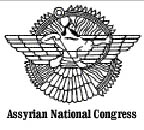

 (AINA) -- In a disappointing setback for the Assyrian human rights movement, the United Nations (UN) Committee on Non-Governmental Organizations denied a request by the Assyrian National Congress (ANC) for consultative status on the Economic and Social Council of the UN According to a January 27, 2000 press release by M2 Presswire, the NGO committee voted eleven to one with six abstentions to reject the ANC application. The sole vote in support of the ANC application was voiced by the US representative.
(AINA) -- In a disappointing setback for the Assyrian human rights movement, the United Nations (UN) Committee on Non-Governmental Organizations denied a request by the Assyrian National Congress (ANC) for consultative status on the Economic and Social Council of the UN According to a January 27, 2000 press release by M2 Presswire, the NGO committee voted eleven to one with six abstentions to reject the ANC application. The sole vote in support of the ANC application was voiced by the US representative.
By attempting to obtain consultative status, the ANC had hoped to bring greater international attention to the plight of Assyrians as an indigenous and persecuted minority in the Middle East. Along with other Assyrian organizations, the ANC has in the past attempted to document and expose human rights violations perpetrated against Assyrians especially by the Iraqi government. In a tersely worded letter to the committee, the ANC unleashed years of frustration with the obstructionist U.N. committee stating that despite cooperation with the committee, the ANC was "confronted by an orchestrated campaign carried out against our application by the 'Iraqi Observer' and few [sic] other representatives from the Arab countries." The ANC further stated that the reason for the campaign against its application was that the ANC monitors human rights abuses against Assyrians "including the linguistic and cultural rights of the indigenous people in Iraq, where a campaign of 'ethnocide' and 'Arabization' have been carried out against the history and culture of those indigenous people."
In reality, harassment and intimidation of Assyrians has intensified throughout Iraq in recent years. Whether in the US backed northern "Safe Haven" or the government controlled portion of the country, Assyrians have not been given official recognition as a people let alone as the indigenous people of Iraq. In northern Iraq, Assyrians are subjected to Kurdification policies and are routinely referred to as Kurdish Christians while the Arabization policies in Baghdad refer to Assyrians as Arab Christians.
The Behdanani-Sorani tribal elites who are ostensibly diametrically opposed to the Baghdad government have none the less found much common ground with the government vis a vis the Assyrians. In addition to denying the existence of Assyrians, both government authorities have pursued a policy of ethnic cleansing with the destruction of over 200 villages by the central government in the 1970's with the subsequent illegal resettlement by Behdanani and Sorani tribes. Still more, since the Gulf War an additional 50 villages have been expropriated by tribes in areas controlled by the Kurdistan Democratic Party (KDP) and the Patriotic Union of Kurdistan (PUK).
Although Assyrians have exercised their internationally backed right to establish schools in northern Iraq, the Iraqi government earlier issued an edict demanding that these schools be closed as a threat to national security (Iraq Report - December 3, 1999, Volume 2, Number 44) For their part, the Behdananis and Soranis have likewise attempted to obstruct the advancement of Assyrian students to higher-level Assyrian schools (AINA October 20, 1998). All the while continued attacks against Assyrians throughout the country remain uninvestigated.
International awareness of the plight of Assyrians throughout the Middle East has greatly increased over the past several years on account of work by numerous Assyrian organizations as well as international human rights organizations such as Amnesty International and Human Rights Watch. Human rights abuses against Assyrians have even been documented by the U.S. State Department. However, the UN has been slow to formally recognize, investigate and address the issues involving Assyrians. UN Consultative status for Assyrian organizations is a necessary first step towards an enhanced international understanding of the crisis facing Assyrians. With several UN committee representatives pointing to weaknesses in the ANC application, it is hoped that future applications will combine the logistic and political strength of several Assyrian human rights and political organizations with those of the ANC in order to ensure consultative status for Assyrian human and political rights within the UN.

or register to post a comment.